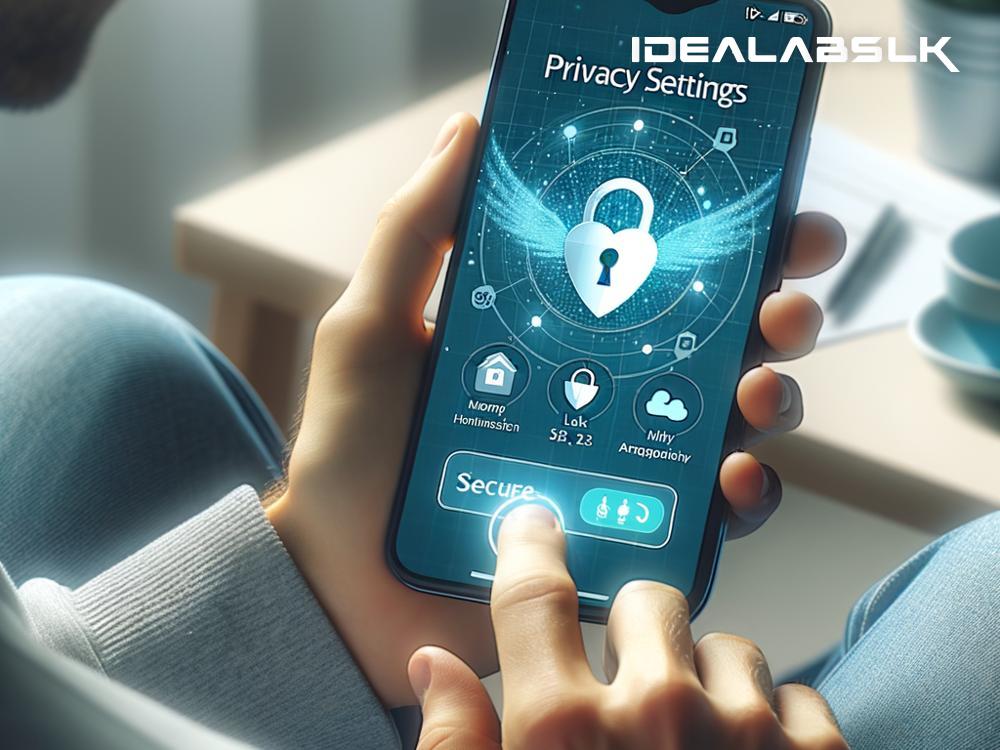As we step further into the digital age, our health data is going online too. From step counters on our phones to more complex health monitoring systems, technology is increasingly playing a vital role in our wellness regimes. But with great convenience comes great responsibility, especially when it comes to protecting our privacy. Our digital footprints in healthcare apps can reveal much more about us than we may initially realize. Therefore, it's crucial to understand how to protect your privacy when using these health tech tools. Here, we'll guide you on managing your digital footprints in healthcare apps effectively.
Understand What You're Signing Up For
Before you hit the "Accept" button on any health app's terms and conditions, take a moment to read through them. Yes, it's tempting to skip the fine print, but understanding what data the app collects, how it's used, and who it's shared with is crucial. Be on the lookout for permissions that don't seem necessary for the app's functionality. For example, a meditation app shouldn't really need access to your contacts or messages.
Use Strong Passwords
It might seem basic, but using strong, unique passwords for your health accounts can significantly impact your privacy. Avoid using easily guessable passwords like "123456" or "password." Instead, aim for combinations of letters, numbers, and symbols. Consider using a password manager to keep track of your passwords, so you don't have to remember each one.
Be Cautious With Sharing
Many health apps offer the option to share your progress on social media or with friends. While sharing can be a source of motivation, it also increases the amount of personal information you're putting out there. Think twice before you share your health data, and adjust your privacy settings to control who can see your posts.
Regularly Review App Permissions
Apps often get updated, and sometimes these updates can alter privacy settings or permissions. Make it a habit to regularly review the permissions you've granted to each health app. If you're no longer using an app, consider revoking its permissions or deleting it altogether.
Opt for Apps With End-to-End Encryption
When choosing health apps, look for those that offer end-to-end encryption. This means that your data is encrypted from the moment it leaves your device until it reaches the app's server, and cannot be read by anyone in between. This added layer of security helps protect your data from potential breaches.
Be Wary of Free Apps
Remember, if an app is free, then you're likely the product. Free apps often make money by collecting and selling your data. While not all free apps misuse your data, it's essential to be cautious. Always check the app's privacy policy and consider investing in paid apps that prioritize user privacy.
Secure Your Devices
Your efforts to secure your apps will be in vain if your device itself is not secured. Always keep your devices updated with the latest software, as updates often include security patches. Use biometric locks (like fingerprint or facial recognition) and set a strong passcode to lock your device. This will help protect your data if your device ever gets lost or stolen.
Know Your Rights
Familiarize yourself with the privacy laws in your country. For example, in the United States, the Health Insurance Portability and Accountability Act (HIPAA) protects individuals' medical records and other personal health information. Knowing your rights can empower you to take action if you believe an app is mishandling your data.
Consider Anonymized Data Sharing
If you're comfortable sharing your health data for research purposes, consider apps that allow you to share your data anonymously. This means your personal information will be stripped from your data before it's shared, reducing the risk of your identity being compromised.
In conclusion, protecting your privacy while using health tech requires a combination of caution, knowledge, and proactive management of your digital footprints. By understanding what you're signing up for, using strong passwords, being cautious with sharing, and securing your devices, you can enjoy the benefits of health tech without compromising your privacy. Remember, managing your digital footprint in healthcare apps isn't just about protecting your data; it's about taking control of your digital well-being.

